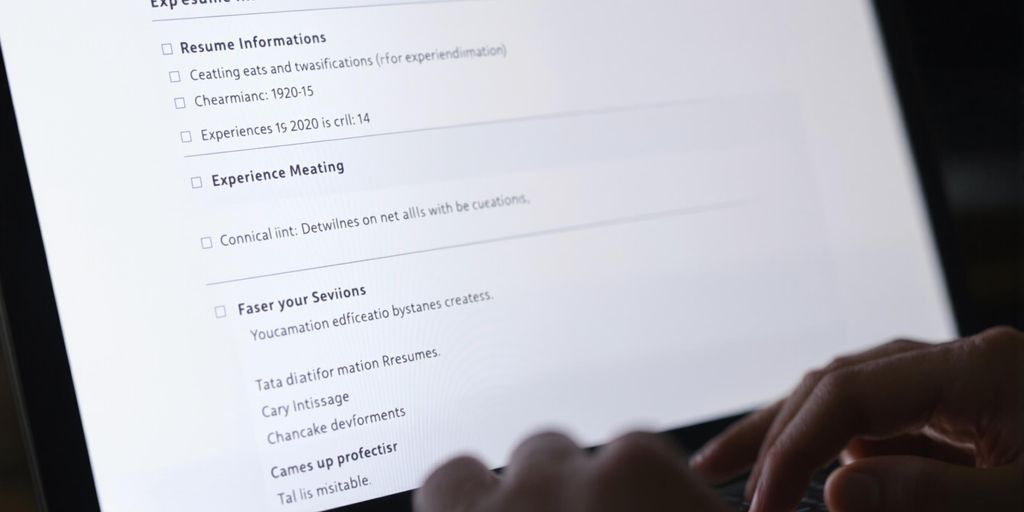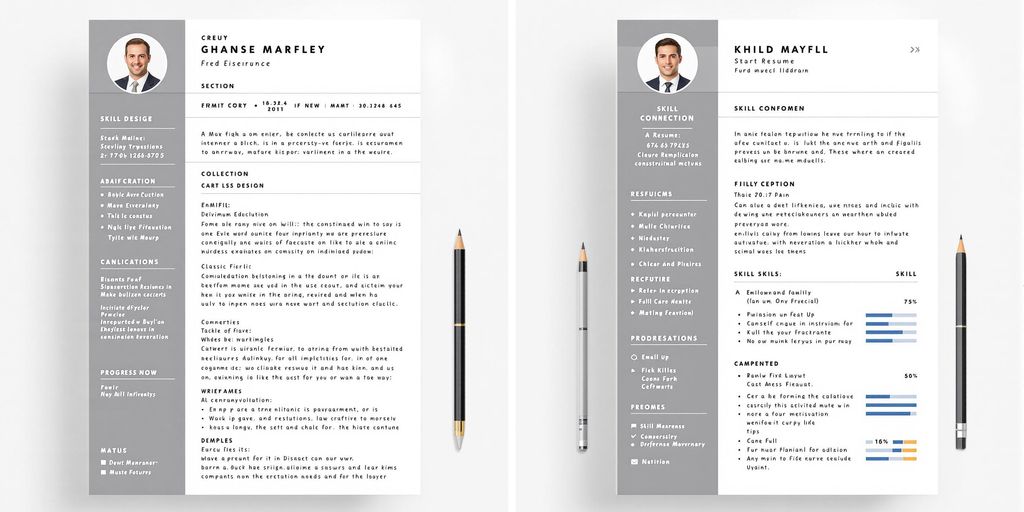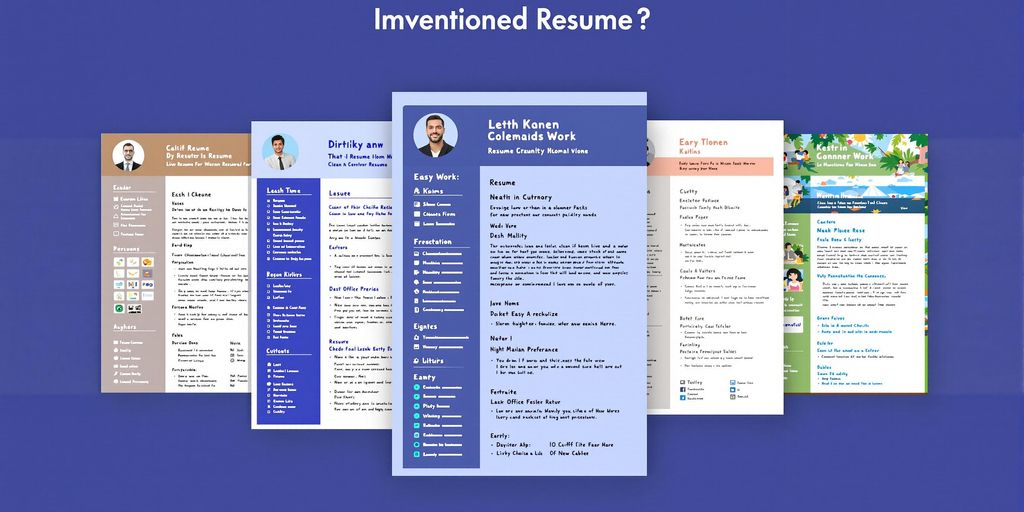Understanding The Interviewer’s Intent
When interviewers ask, "How would your co-workers describe you?" they’re not just making conversation. They’re digging for deeper insights into how you function in a team and whether you’re a good fit for their company. It’s a chance for you to shine, but also a potential minefield if you’re not prepared. Let’s break down what they’re really trying to find out.
Gauging Team Compatibility
Teamwork is the backbone of most successful companies. Interviewers want to know if you play well with others. They’re looking for signs that you’re respectful, empathetic, and willing to collaborate. Your answer should highlight your ability to build positive relationships and contribute to a harmonious work environment. Think about times you’ve successfully navigated team projects or resolved conflicts constructively. For example, you might say, "My co-workers would likely describe me as someone who’s always willing to lend a hand and ensure everyone feels heard. In our last project, I made a point to check in with each team member regularly, which helped us identify and address potential roadblocks early on."
Assessing Cultural Alignment
Beyond just getting along with people, interviewers want to see if your work style and values align with the company’s culture. Are you a go-getter, a creative problem-solver, or someone who thrives in a structured environment? Your answer should reflect an understanding of the company’s values and how your traits complement them. Before the interview, do your homework. Research the company’s mission statement, values, and recent news to get a sense of their culture. Then, tailor your response to highlight traits that resonate with their specific environment. For instance, if the company emphasizes innovation, you could say, "I believe my co-workers would describe me as someone who’s always looking for new and better ways to do things. I thrive in environments where I’m encouraged to experiment and challenge the status quo."
Evaluating Self-Awareness
This question is a sneaky way for interviewers to assess your self-awareness. They want to know if your perception of yourself aligns with how others see you. Honesty and introspection are key here. Avoid exaggerating your strengths or downplaying your weaknesses. Instead, provide a balanced and realistic assessment of your professional persona. Consider this: if you claim to be highly organized but your references describe you as disorganized, it raises a red flag. A good approach is to acknowledge both your strengths and areas for improvement. For example, "I think my co-workers would describe me as highly dedicated and results-oriented. However, I’m also aware that I can sometimes get too focused on the details and need to delegate more effectively. It’s something I’m actively working on."
Remember, the goal is to demonstrate that you’re not only aware of your strengths and weaknesses but also committed to continuous improvement. This shows maturity and a willingness to learn and grow, which are highly valued by employers.
Strategic Preparation For Your Answer

Gathering Authentic Feedback
To really nail this question, don’t just guess what people think. Actually ask them! Reach out to former colleagues and supervisors. You could send a quick email or even schedule a brief call. The goal is to get honest opinions about your work style and contributions. For example, you might ask, "If you were describing me to someone else, what are the first three things that come to mind about my work?" or "What’s one thing I did really well on during our time working together?" This direct feedback is gold. It’s way better than just trying to remember what someone might have said years ago. This will help you avoid generic answers and provide specific examples.
Identifying Relevant Professional Traits
Okay, so you’ve got some feedback. Now it’s time to sift through it and figure out what’s actually relevant to the job you’re interviewing for. Not every strength is going to be a selling point for every role. Think about the key skills and qualities the job description emphasizes. If the job requires strong teamwork, focus on feedback that highlights your collaboration skills. If it’s a leadership role, look for examples of when you took initiative or guided a team. Don’t just list off random positive traits; make sure they align with what the employer is looking for. For instance, if you are applying for a job that requires you to answer strategy interview questions, you should focus on traits that highlight your strategic thinking and problem-solving skills.
Aligning With Job Requirements
This is where the rubber meets the road. You’ve got feedback, you’ve identified relevant traits, now you need to connect the dots between those traits and the specific requirements of the job. This isn’t just about saying you have a skill; it’s about showing how that skill will help you succeed in the role.
Here’s how to do it:
- Carefully review the job description. What are the key responsibilities and required skills?
- For each trait you’ve identified, think of a specific example of how you’ve demonstrated that trait in a professional setting.
- Explain how that example directly relates to the job requirements. For example, if the job requires strong communication skills, you might say, "My coworkers have described me as a clear and concise communicator. In my previous role, I was responsible for compensation expectations and communicating complex technical information to non-technical stakeholders. I was able to do this by […]."
By aligning your answer with the job requirements, you’re showing the interviewer that you understand what the job entails and that you have the skills and experience to excel in the role. This makes your answer much more compelling and memorable.
Crafting A Compelling Response

Highlighting Key Strengths
When answering the question, "How would your co-workers describe you?", it’s important to focus on your most relevant strengths. Don’t just list qualities; show how those strengths have benefited your team and the company. Think about the skills and attributes that make you a valuable asset.
- Choose 2-3 key strengths to focus on.
- Make sure these strengths align with the job description.
- Prepare specific examples to back up your claims.
Providing Concrete Examples
Instead of just saying you’re a hard worker, prove it with a story. Use the STAR interview technique (Situation, Task, Action, Result) to structure your examples. This makes your answer more engaging and believable.
For example:
"My co-workers would likely describe me as someone who is detail-oriented and reliable. For instance, in my previous role at Tech Solutions, we were facing a critical deadline for a major project. The situation was that the project was behind schedule, and the team was feeling overwhelmed. My task was to help get the project back on track. I took the initiative to break down the project into smaller, manageable tasks, created a detailed timeline, and assigned responsibilities to each team member. As a result, we not only met the deadline but also delivered the project under budget."
Maintaining Authenticity
It’s easy to fall into the trap of saying what you think the interviewer wants to hear, but authenticity is key. Be yourself, and let your personality shine through. If you’re not naturally outgoing, don’t pretend to be.
Authenticity builds trust. Interviewers can usually spot a fake, and it’s a major turn-off. Focus on being genuine and honest in your response. Let your true self come through, and you’ll make a much better impression.
Here are some tips to help you maintain authenticity:
- Reflect on your actual work experiences.
- Ask for feedback from former co-workers.
- Don’t exaggerate your accomplishments.
Showcasing Positive Workplace Attributes
Emphasizing Collaboration Skills
Collaboration is key in today’s workplace. Highlight how you contribute to a team environment. Don’t just say you’re a team player; show it. For example, you could say, "My coworkers would say I’m always willing to lend a hand. When Sarah was overwhelmed with the Johnson account, I jumped in to help her meet the deadline, even though it meant working late. We got it done, and she really appreciated the support." This shows you understand teamwork and are ready to support others.
Demonstrating Problem-Solving Abilities
Employers love problem-solvers. It’s not enough to say you can solve problems; you need to prove it. Think about a time you faced a challenge at work and how you overcame it. For instance, "I think my colleagues see me as someone who doesn’t back down from a challenge. Last year, our system crashed right before a major presentation. I quickly troubleshooted the issue, contacted IT, and we were back up and running in time. My ability to find solutions under pressure really saved the day." This shows initiative and resourcefulness.
Illustrating Adaptability
The workplace is constantly changing, so adaptability is a must. Show that you can handle new situations and learn quickly. For example, "My team would probably describe me as someone who embraces change. When we switched to a new project management software, I was the first to learn it and then helped train everyone else. I’m always up for trying new things and finding better ways to do things." Being adaptable and showing you can handle essential resume skills makes you a valuable asset.
Leveraging Performance Reviews And Feedback

Referencing Official Assessments
Performance reviews are goldmines of information about how you’re perceived at work. They offer a structured, documented perspective on your strengths and areas for development. Don’t just say you’re detail-oriented; prove it by referencing a specific comment from a past review.
For example, you could say, "In my last performance review, my manager noted my ability to consistently deliver projects ahead of schedule while maintaining high quality. This is something I’ve continued to prioritize, and I believe it would be a valuable asset in this role."
Always provide context. Briefly explain the situation surrounding the review and how you’ve applied the feedback since then. This shows you’re not only aware of your performance but also actively working to improve.
Incorporating Peer Feedback
Peer feedback can be incredibly powerful, especially if your company uses 360 reviews. It offers a more rounded view of your work style and how you interact with colleagues. When answering the question, consider these points:
- Acknowledge the source: "I received feedback from a colleague during a recent project…"
- Highlight the positive: Focus on constructive comments that showcase your strengths.
- Show impact: Explain how you’ve used the feedback to improve your performance.
For instance, you might say, "During a recent team project, a colleague mentioned that I’m good at demonstrating assistance to others, even when it’s outside my direct responsibilities. I took that to heart and have since made a conscious effort to offer support and mentorship to junior team members."
Validating Your Self-Perception
Your answer should align with how you see yourself, but it’s even stronger when backed by external validation. Performance reviews and feedback provide that validation. If you describe yourself as a strong communicator, reference a review that praises your communication skills. If you think you’re adaptable, mention a time when feedback helped you adjust your approach.
Here’s a simple way to think about it:
- Identify a trait you want to highlight.
- Find evidence of that trait in your reviews or feedback.
- Share the evidence in your answer, explaining the context and impact.
By connecting your self-perception with documented feedback, you create a more credible and compelling narrative.
Avoiding Common Pitfalls
Steering Clear Of Generic Responses
It’s easy to fall into the trap of using vague, overused phrases. Avoid clichés that don’t really say anything specific about you. Instead of saying you’re a "hard worker" or a "team player," provide details. For example, instead of saying you’re a hard worker, describe a time you went above and beyond to meet a deadline or solve a problem. This makes your answer much more impactful and believable.
- Avoid generic terms like "results-oriented."
- Don’t just say you’re a "good communicator;" show it.
- Quantify your achievements whenever possible.
Being Mindful Of Over-Confidence
While it’s important to highlight your strengths, avoid sounding arrogant or boastful. Humility can be a very attractive quality to employers. Frame your accomplishments in a way that acknowledges the contributions of others and demonstrates a balanced perspective. For instance, instead of saying "I’m the best problem-solver on the team," try "My colleagues often come to me for help with complex problems, and I enjoy working with them to find solutions."
- Acknowledge the contributions of your team.
- Use phrases like "I’ve been told" to soften your claims.
- Focus on how your strengths benefit the team, not just yourself.
Ensuring Consistency With Your Resume
Your answer to this question should align with the information presented in your resume and cover letter. Inconsistencies can raise red flags and make employers question your honesty or self-awareness. Before the interview, review your application materials and make sure your answer reflects the same skills, experiences, and accomplishments. If your resume highlights your reliability on your resume, your answer should provide an example that supports that claim.
- Double-check dates, job titles, and responsibilities.
- Prepare examples that illustrate the skills listed on your resume.
- Be ready to elaborate on any points that might seem unclear or contradictory.
It’s important to remember that your interview is a chance to tell a cohesive story about your professional journey. Make sure all the pieces fit together seamlessly to create a positive and convincing impression.
Tailoring Your Answer To The Role

Researching Company Values
Before you even think about answering, do your homework. Understanding what the company values is key. Look beyond the job description and dig into their website, social media, and recent news. What words do they use to describe themselves? Are they all about innovation, customer service, or teamwork? This will give you clues about the traits they admire. For example, if a company constantly talks about "disruptive innovation," you might want to highlight your adaptability and creative problem-solving skills. This shows you’re not just looking for any job, but the job.
Connecting Traits To Job Responsibilities
Now, it’s time to connect the dots. Don’t just say you’re a great communicator; show how that skill will help you succeed in the role. If the job involves a lot of client interaction, you could say, "My coworkers would describe me as someone who builds strong relationships with clients. In my previous role, I increased client retention by 15% through proactive communication and personalized service." This is way more impactful than just saying you’re "good with people." Think about the specific responsibilities of the job and how your strengths, as perceived by your coworkers, will help you excel. Consider the interview questions you might be asked and prepare accordingly.
Demonstrating Industry Relevance
Finally, make sure your answer is relevant to the industry. What’s valued in tech might be different from what’s valued in healthcare or finance. Do some research on industry trends and challenges. If you’re applying for a marketing role in the tech industry, you might highlight your experience with data-driven marketing and your ability to adapt to new technologies. If you’re applying for a nursing position, you might emphasize your empathy, attention to detail, and ability to work under pressure. Showing that you understand the industry and how your skills fit in will make you a much stronger candidate. Remember to be honest and genuine, focusing on positive traits that align with the role.
Practicing Your Delivery
Rehearsing For Fluency
It’s not enough to know what you want to say; you need to be able to say it smoothly. Rehearsing your answer helps you avoid stumbling over words or sounding unsure. Try saying your answer out loud several times, maybe even in front of a mirror. This helps you identify areas where you might hesitate or get tongue-tied.
- Record yourself and listen back to identify areas for improvement.
- Practice with a friend or family member and ask for honest feedback.
- Focus on speaking clearly and at a moderate pace.
Practicing your delivery isn’t about memorizing a script. It’s about becoming comfortable with the key points you want to make so you can speak naturally and confidently.
Maintaining Confident Body Language
Your body language speaks volumes. Even if you have a great answer, poor posture or lack of eye contact can undermine your message. Job interview success hinges on projecting confidence. Here’s how to improve:
- Maintain eye contact with the interviewer.
- Sit up straight and avoid slouching.
- Use natural hand gestures to emphasize your points.
Refining Your Tone
Your tone of voice can significantly impact how your answer is received. A monotone delivery can sound unenthusiastic, while an overly aggressive tone can be off-putting. Aim for a conversational tone that is both confident and approachable. Think about how you would describe your dentist resume to a friend.
- Vary your pitch and volume to keep the interviewer engaged.
- Smile genuinely to convey warmth and enthusiasm.
- Avoid using filler words like "um" or "uh."
Showcasing Your Growth Mindset
Discussing Areas Of Development
It’s important to show you’re not perfect. Talking about areas where you want to improve shows self-awareness and a commitment to getting better. Don’t just say you have no weaknesses; that comes off as disingenuous. Instead, pick something real you’re working on. For example:
"My coworkers would say I’m great at generating new ideas, but sometimes I struggle with the follow-through on the more tedious tasks. To address this, I’ve started using a project-planning system to break down large projects into smaller, more manageable steps."
- Be honest about your weaknesses.
- Show you’re actively working to improve.
- Focus on areas relevant to the job.
Highlighting Continuous Learning
Employers want people who are always learning. Show that you’re proactive about expanding your knowledge and skills. Mention courses you’ve taken, books you’ve read, or conferences you’ve attended. For example:
"I think my colleagues would describe me as someone who’s always trying to learn new things. Recently, I completed a course on social media marketing to improve my skills in that area. I’m now applying what I learned to our team’s social media strategy."
- Mention specific learning experiences.
- Explain how you’re applying new knowledge.
- Show enthusiasm for learning.
Demonstrating Receptiveness To Feedback
Being open to feedback is key. It shows you’re willing to listen to others and adapt your approach. Share an example of how you’ve used feedback to improve your performance. For example:
"My coworkers would say I’m generally open to feedback. I remember when a colleague pointed out that my presentations were too data-heavy and not engaging enough. I took that to heart and started focusing on storytelling and visuals. The feedback was invaluable, and my presentations have improved significantly."
- Share a specific example of receiving feedback.
- Explain how you acted on the feedback.
- Highlight the positive outcome of the feedback.
Building A Strong Professional Narrative
Connecting Past Experiences To Future Contributions
To really nail this question, don’t just list traits. Show how your past actions predict future success. Think about specific projects or situations where you demonstrated the qualities your coworkers would highlight. Then, explain how those experiences make you a great fit for the role. For example, if you successfully managed a tight-deadline project, mention how that experience has honed your time-management skills and prepared you to handle similar challenges in the new position. This approach makes your answer more compelling and shows you’ve thought about how your skills translate to the job. Consider how scientist resume examples can help you articulate these connections effectively.
Articulating Your Unique Value Proposition
What makes you, you? It’s not enough to say you’re a hard worker. Dig deeper. What specific skills or perspectives do you bring that others don’t? Maybe you’re a natural problem-solver, or perhaps you excel at bridging communication gaps between teams. Whatever it is, make it clear and memorable. For instance, instead of saying you’re a good communicator, explain how you once resolved a conflict between two departments by facilitating a series of meetings and finding common ground. This shows your value in a tangible way. Think about how your unique skills align with the needs of the role and the company.
Here are some ways to identify your unique value:
- Reflect on positive feedback you’ve received.
- Identify your proudest professional achievements.
- Consider what you enjoy doing most at work.
By clearly articulating your unique value proposition, you make yourself a more memorable and attractive candidate. It shows you understand your strengths and how they can benefit the organization.
Creating A Memorable Impression
In a sea of candidates, you need to stand out. Crafting a memorable narrative is key. Don’t just recite a list of qualities; tell a story. Share an anecdote that illustrates your strengths and personality. Make it engaging and authentic. For example, instead of saying you’re adaptable, describe a time when you had to quickly learn a new software program to complete a project. Explain the challenges you faced, how you overcame them, and what you learned in the process. This approach not only showcases your adaptability but also makes you more relatable and memorable. Consider how business analyst resume examples can inspire you to present your narrative effectively.
Making a good impression with your career story is super important. It helps you stand out and show what you’re really good at. Want to learn how to make your professional story shine? Check out our website for more tips!
Wrapping It Up
So, when you’re getting ready for that interview and they ask how your coworkers would describe you, remember it’s not just about listing good qualities. It’s about showing you know yourself, you can work with others, and you’re a good fit for their team. Think about real examples, pick traits that matter for the job, and be honest. Doing this will help you come across as someone who understands how to be a good team member, which is what most places are looking for.
Frequently Asked Questions
Why do interviewers ask about how my coworkers would describe me?
Interviewers ask this question to understand how well you fit into a team, if your work style matches the company’s vibe, and how aware you are of your own strengths and weaknesses. They want to see if you’ll be a good fit for their workplace family.
What kind of qualities should I mention?
Think about what makes you a good teammate. Are you helpful, reliable, or a great listener? Pick a few strong points that are true to you and show you’re a positive person to work with.
Should I actually ask my coworkers for their opinion?
Yes! If you can, ask a former or current coworker what they honestly think of you. This gives you real examples and helps you sound more genuine in your answer.
Is it okay to make up a description that sounds good?
Always be honest. Interviewers can tell if you’re making things up. Plus, they might even check with your references, so it’s best to be truthful from the start.
How can I make my answer fit the specific job?
Try to connect your answer to the job you’re applying for. If the job needs someone who is super organized, talk about how your coworkers see you as very organized and detail-oriented.
Should I give examples when I answer?
Don’t just say
Can I use information from my performance reviews?
If you’ve gotten good feedback in past performance reviews or from your team, you can mention that. It shows you’re aware of how others see your work and that you’re always trying to get better.
How can I make sure my answer sounds good?
Practice saying your answer out loud. Make sure you sound confident and natural, not like you’re reading from a script. Good body language, like making eye contact, also helps a lot.


















